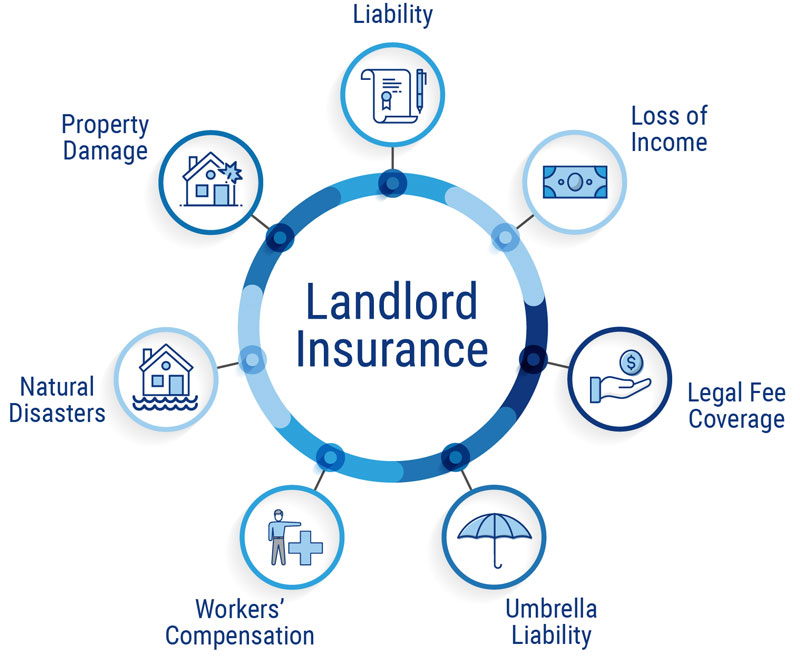Introduction
Both home insurance & renters insurance provide policyholders financial security against losses resulting from property damage, legal liabilities, medical expenses for others, and living expenses away from home. The sorts of damage to property covered are the primary difference between the two types of plans.
Your insurer will pay you compensation if your home sustains damage from fire, hurricanes, lightning, vandalism, or other insured catastrophes, allowing you to restore or fully rebuild your home. Floods, disasters, and poor property upkeep are often not covered, and if you're the kind of protection, you could need supplementary riders. The same rules apply to the main home and to freestanding garages, sheds, and other buildings on the property, which may need to be insured individually.
Most of your home's belongings, including clothing, furniture, and appliances, are covered if damaged in an insured event. Even "off-premises" coverage is available, allowing you to submit a claim for lost property anywhere in the globe, such as jewels. However, the amount your insurance will pay you can be subject to a cap. The majority of insurance providers will offer coverage for between 50% and 70percentage points of the quantity of coverage you have on the house's construction, according to the Insurance Information Institute. 1 For instance, if your residence is covered for $200,000, your goods would be covered up to a maximum of $140,000.
Suppose you have a lot of expensive items, such as artistic expression or antiques, jewelry, or designer clothing. In that case, you may wish to pay more to include them on an itemized schedule, buy a rider to cover them, or even purchase a new policy.
For people who own their own house or apartment, homeowners insurance provides coverage for their personal property and the building itself. Tenants obtain renters insurance, which covers theft or damage to their goods but excludes damage to the structure as a whole.
Understanding the Concept
Owners’ insurance, commonly called house insurance, is a need, not a luxury. Even if you don't own your house, you still need insurance since many landlords insist that their renters have insurance. But it is a good idea whether this type of security is necessary. We'll go through the fundamentals of a homeowner insurance policy with you.
Renters insurance is insurance that defends the insured against liability claims and pays damages to personal items. This covers accidents within your rental but aren't caused by a structural issue. Your landlord is liable for any injuries brought on by structural issues. Any from a studio flat to an entire home or mobile home is covered by renters insurance.
Purchasing renters insurance coverage might be a wise investment, even if you're only moving in or staying in a home for a year. It's likely the least costly and most straightforward insurance you'll ever acquire. Even while you may not believe you have much of worth, you undoubtedly do—perhaps more than you can ever easily afford to buy a new one in the case of a severe theft or fire. Furthermore, you do not influence your neighbors, regardless of how cautious you are with your home (the kind of home owned by most tenants). They may buzz malicious outsiders into your building, leave your protection gates open, or fall asleep with smoking in their hands and ignite a large fire. While your landlord's property insurance may cover the building itself, it does not protect the goods of your unit or the damage for which you can be held liable by somebody who has an accident there.
Important Points to be Focused
- Homeowners insurance will cover your existing house (and related structures such as carparks).
- With renter's insurance, your personal property is covered, while the landlord's insurance will cover the building.
- The majority of lenders demand homeowners insurance when you apply for a mortgage.
- Tenants purchase renter insurance to protect their personal belongings and liabilities, not the landlords.

Main Differences Between Them Both
- Home insurance plans contain dwelling coverage, but renters insurance plans do not. This is the main distinction between owners’ and renters’ insurance. You would still not need property and home insurance to protect your stuff at the same house, as the plans are otherwise practically identical.
- Residence, personal property, personal responsibility, supplementary living costs, and medical payments are homeowners insurance coverage categories. All of those characteristics—aside from the first—make renters insurance comparable to a low-cost house insurance option for tenants.
- Both homeowners and renters are covered by homeowner and renters insurance. Unlike insurance coverage, home and renters insurance are often not mandated by the law. Although it is not required by law, owners and homeowners insurance are crucial to safeguard your possessions. You won’t want to pay for repairs out of pocket if an unforeseen occurrence happens.

The Bottom Line
Unless there are unique conditions, a landowner is not obliged to ensure their property; however, a homeowner with a mortgage is often required to get an insurance policy. In the lease agreement, landlords often require renters to purchase their insurance. Homeowners’ insurance will cost more than rental insurance since you cover a more significant asset. Most homeowner's and renter's insurance plans also include liability coverage.




